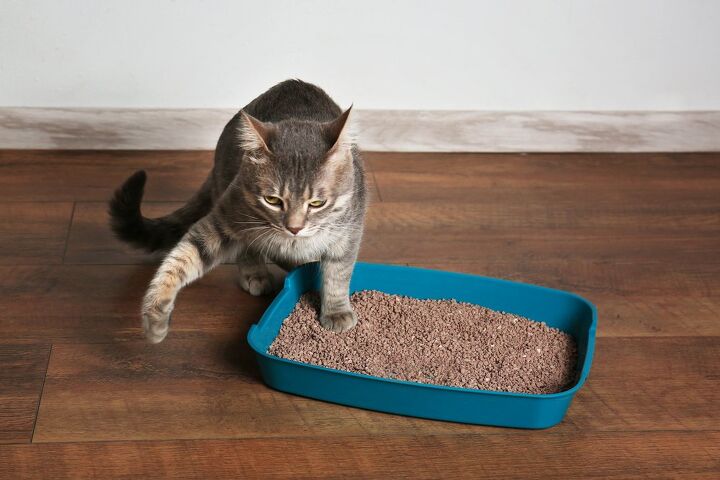Ask the Animal Communicator: Litterbox Laments

Cat pee….it happens. But what can you do when it keeps happening in all the wrong places and everything you know to try hasn’t worked to stop it? You ask the animal communicator, of course!
Dear Shannon,
Lately my 7-year-old male soul cat, Alex, has been peeing outside the litter box. I’m what you might call a crazy cat lady for life – suffice it to say I know about cats. So I’ve tried all the remedies I know to do – a well cat veterinary exam, a litter box deep clean, change in kitty litter, deterrent spray, pheromones, more play time, more treats – I’ve even added a second litter box just in case Alex wants more options! Still with the pee, though. I’m at my wit’s end. Is he lonely? Would getting a second cat help?
Thanks,
Sophie, aka No Cat Pee for Me
Shannon’s reply:
Hi Sophie,
Oh I hear you! Truly I do. The first thing I want to say to you is THANK YOU. You clearly care about Alex deeply and are willing to stretch out of your comfort zone to hear what your precious soul cat is trying to tell you. As an animal communicator, I live to talk to pet parents like you.
The second thing I want to share is that when you are having trouble with one pet, the solution is rarely to get a second pet (kind of like when a human relationship is in trouble – adding a baby might mask the issue but it rarely solves it!). So let’s hold off on that for a bit, ok?
And now let’s dig in a bit deeper. Of course, Alex can’t just walk up to you and say in human-speak, “Hey, Mom, here is what is really bugging me.” But as you’ve noticed, Alex can speak loudly using his pee! And it works, doesn’t it! You’ve noticed he really wants to tell you something. But what is it?
Luckily, you’ve reached out to an animal communicator. What does that mean? I’m not a pet trainer, not an animal behaviorist – rather, I use a different set of language skills to communicate with all species. In this case, it means I can talk to pets using all of my senses and receive their replies in the same way.
When I tuned in with Alex, my first impression is of a cat who is very proud, refined, dignified. As in, peeing outside the toilet really isn’t “him.” It isn’t like him to do this – and so no wonder you have been so beside yourself with worry.
After getting to know Alex a bit more, I asked him if there is anything about the litter box situation in your home that he is dissatisfied with. He said, “It is just fine – Mom does a great job keeping everything clean for me. She even added a second litter box which is great. I don’t love the new litter but it is okay.
My next question to Alex was to ask why he keeps peeing outside the litter box if there isn’t anything wrong with it. And here is where our conversation gets good.
Alex showed me a mini-movie of you sitting at your desk at work. I see a woman in a suit walk in and dump a load of files on your desk. Then I see a man in a suit come in and dump more files on your desk. Each time it happens I feel more sadness coming from you and a feeling of being stuck doing work that isn’t yours to do.
The message Alex relayed next had my jaw on the floor. “All these people at work keep peeing in Mom’s litter box and she thinks she can’t stop them from doing it but she can!”
Even though I do this work every day, I never stop being amazed by how well our pets know us. But we are their whole world and so it is only natural they don’t miss a beat.
Sophie, I hope this is helpful to you. Watch for a change in Alex’s toilet behavior. Typically, once our pets have gotten their message through to us, they will stop whatever the troublesome behavior is like it never even happened. Please keep in touch and let me know how it goes with you and Alex.
From my heart,
Shannon

Shannon Cutts is an intuitive animal communicator and Reiki master practitioner with Animal Love Languages. Shannon works through the universal love language of all species to connect with her pet clients – deep listening. Deep listening activates empathy, allowing Shannon to literally feel what an animal is feeling, listen in to their thoughts, experience what they are experiencing and then relay all of that information to the pet parent. Visit Shannon at www.animallovelanguages.com
More by Shannon Cutts























